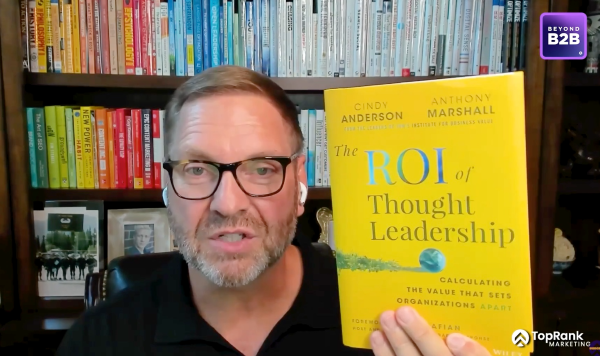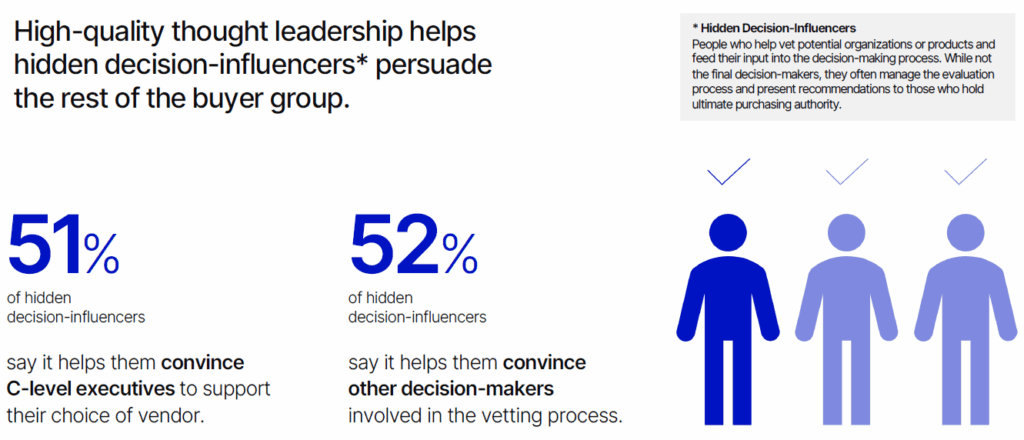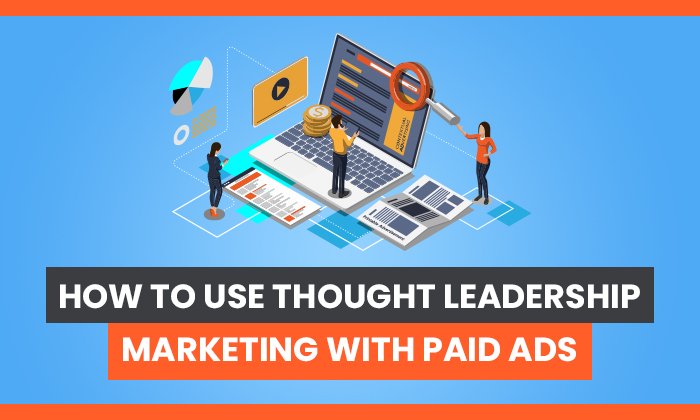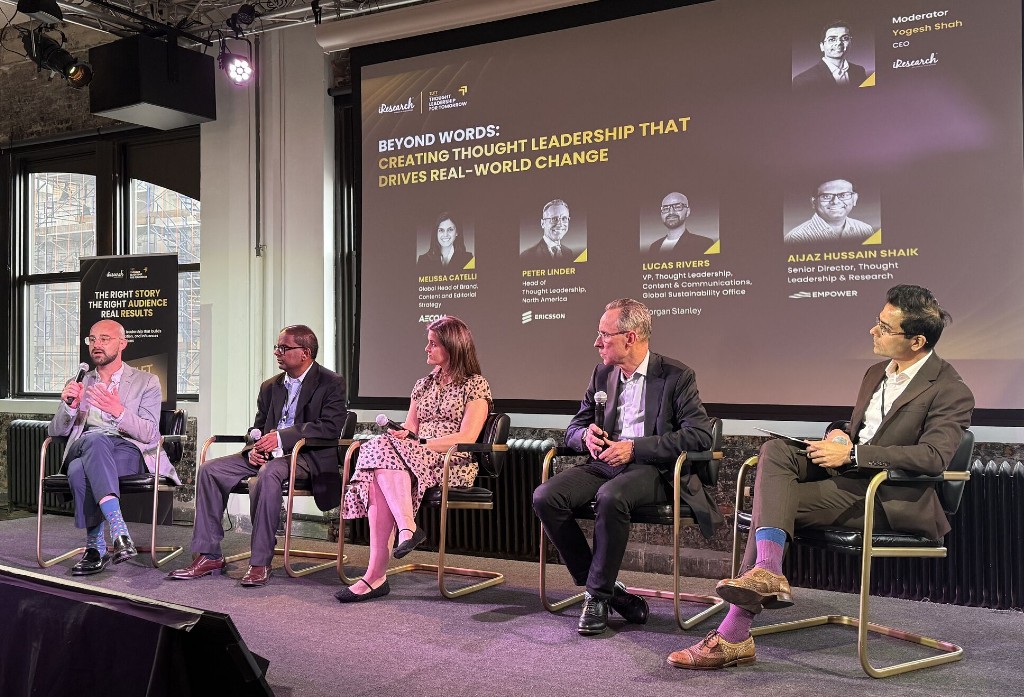Thought Leadership as a Platform for B2B Marketing ROI
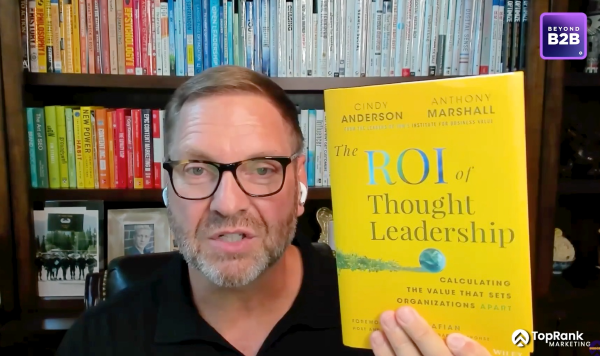
By Lee Odden
If you’ve taken marketing classes at University or worked in the field for a while, you’re probably familiar with the “7 Ps” of marketing (product, price, place, promotion, people, process, and physical evidence).
According to new research shared at this year’s Content Marketing World by Cindy Anderson and Anthony Marshall of the IBM Institute for Business Value, it’s time to make room for an eighth: Platform. As in Thought Leadership as a platform.
In their session, “Thought Leadership as the 8th P of Marketing,” Cindy and Anthony presented data from one of the most extensive global studies ever conducted on the business value of thought leadership. Their findings help quantify what many thought leadership and marketing practitioners have known, but struggled to effectively prove: that thought leadership is more than a brand building effort, it drives measurable revenue outcomes for business.
While most B2B marketers are sorting out where AI best fits in their mix, the hunger for trusted, data informed human perspectives that decision makers can rely on to solve their business problems is growing. That’s why I think this research, book and presentation from Cindy and Anthony on thought leadership as a platform is more timely than ever.
Thought Leadership defined: Distinctive, evidence-based, and action-oriented
In their new book, The ROI of Thought Leadership: Calculating the Value That Sets Organizations Apart (Wiley, 2025), Cindy and Anthony define thought leadership as:
“Distinctive, evidence-based intelligence that gives leaders the insights they need to make better business decisions and the inspiration to act.”
That definition underscores two important distinctions for most B2B marketers: First, that true thought leadership is grounded in data and insight, not just opinion. Second, that it serves a business purpose, inspiring action among decision-makers.
Another important distinction is that in this framework, thought leadership is not the same thing as content marketing. Rather, it can be the platform on which all other marketing activity is built. In practice, that means campaigns, storytelling, and brand experiences are most effective when they are informed by distinctive, credible insights that position the business as a trusted authority.
This distinction is very much in line with what TopRank Marketing’s Best Answer Marketing approach calls the Trust Engine, the strategic architecture of credibility built through authoritative voices, original research, and data-informed storytelling – validated by credible third party publications.
Proving the ROI: 156% returns that outperform traditional marketing
Despite the general importance of thought leadership, the discipline has historically been difficult to quantify. IBM’s research, conducted in partnership with Oxford Economics and based on surveys of 4,000 global C-suite executives, set out to change that. Their analysis found that, on average, thought leadership delivers an ROI of 156%. By comparison, traditional marketing campaigns yield an average ROI of just 9%.
I think you can agree, the difference is striking. It positions thought leadership not only as a brand-building exercise, but as a financial growth engine that can multiply marketing impact across the funnel.
As Cindy and Anthony put it during their …read more
Source:: Top Rank Blog

